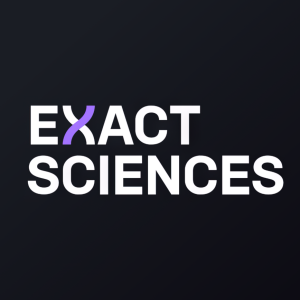New Study in Journal of the National Cancer Institute Finds Cologuard Plus™ Provides the Most Life-Years Gained with the Fewest Colonoscopies
First evaluation of benefit-to-burden for new screening options using methodologies adopted by the United States Preventive Services Task Force
Noninvasive test performance is critical to support patient outcomes and reduce burden on limited colonoscopy capacity
This study leveraged the validated CRC-AIM microsimulation platform, and the same modeling approach developed by the Cancer Intervention and Surveillance Monitoring Network (CISNET) that was used to inform the United States Preventive Services Task Force’s (USPSTF) 2021 colorectal cancer screening guidelines. It incorporated new clinical data published since that update and was sponsored by Exact Sciences.
“This analysis provides new insights into how different colorectal cancer screening strategies balance benefit and burden,” said Dr. Derek Ebner, gastroenterologist, Mayo Clinic and first author of the study. “Having accessible, high-performing noninvasive options for patients encourages screening completion and preserves access to colonoscopy for those who need it most.”
The USPSTF2 defines an “efficient” screening strategy as one that delivers the greatest number of life-years gained for the fewest colonoscopies.2 This benefit-to-burden ratio is driven largely by test performance:
- Higher sensitivity increases early stage and precancer detection, leading to more life years gained
- Higher specificity reduces unnecessary colonoscopies (burden) driven by false-positive results
The modeling study also showed:
- All screening strategies led to more life-years gained compared to no screening.
-
Screening between the ages of 45 to 75, as recommended by USPSTF:
- was efficient with triennial Cologuard Plus™ (next-gen mt-sDNA).
- was near-efficient with annual FIT test.
-
Screening between the ages of 45 to 75:
- was not efficient or near-efficient for annual, biennial or triennial mt-sRNA tests.
- was not efficient or near-efficient for annual, biennial or triennial blood-based tests.
The findings underscore Cologuard Plus as an important tool to improve colorectal cancer (CRC) outcomes while helping preserve limited colonoscopy capacity. Several pressures are affecting access to colonoscopy, including expanded screening age guidelines,3 increased cases of early-onset CRC,4 and a declining number of practicing gastroenterologists.5 With a sensitivity of
While not evaluated in this analysis, the original Cologuard® test remains a guideline-recommended and effective option, reinforcing the strength of Exact Sciences’ mt-sDNA technology portfolio.
* |
References
- Ebner D, Fendrick AM, Kisiel, J, et al. Evaluating benefit-to-burden ratios of the established and emerging colorectal cancer screening strategies, JNCI: Journal of the National Cancer Institute, 1 October 2025.
-
Knudsen AB, Rutter CM, Peterse EFP, et al. Colorectal Cancer Screening: An Updated Decision Analysis for the
U.S. Preventive Services Task Force. AHRQ Technical Report No. 20-05271-EF-2.Rockville, MD : Agency for Healthcare Research and Quality; 2021. https://www.ncbi.nlm.nih.gov/books/NBK570833/pdf/Bookshelf_NBK570833.pdf -
Vespa J, Medina L, Armstrong DM. Demographic Turning Points for
the United States : Population Projections for 2020 to 2060. Current Population Reports, P25-1144.Washington, DC :U.S. Census Bureau; February 2020. https://www.census.gov/library/publications/2020/demo/p25-1144.html -
American Cancer Society. Colorectal Cancer Facts & Figures 2023–2025.
Atlanta, GA : American Cancer Society; 2023. https://www.cancer.org/content/dam/cancer-org/research/cancer-facts-and-statistics/colorectal-cancer-facts-and-figures/colorectal-cancer-facts-and-figures-2023.pdf -
Association of American Medical Colleges.
U.S. Physician Workforce Data Dashboard.Washington, DC : Association of American Medical Colleges; 2023. https://www.aamc.org/data-reports/report/us-physician-workforce-data-dashboard -
Cologuard Plus Clinician Brochure.
Madison, WI ; Exact Sciences Corporation.
About the Cologuard® and Cologuard Plus™ tests
Developed in collaboration with Mayo Clinic, the Cologuard® and Cologuard Plus™ tests are first-line, noninvasive colorectal cancer (CRC) screening options for adults aged 45 or older who are at average risk for the disease. The Cologuard test revolutionized CRC screening by detecting specific DNA markers and blood in stool associated with cancer and precancer, allowing patients to complete the collection kit at home without special preparation or time off, and return the kit to the lab for results. It is included in national screening guidelines from the American Cancer Society (2018) and the
Building on this success, the FDA-approved Cologuard Plus test raises the performance bar even further and features novel biomarkers, improved laboratory processes, and enhanced sample stability. Through high performance, the Cologuard Plus test is designed to reduce the likelihood of false positives, helping to minimize unnecessary follow-up colonoscopies. Both tests demonstrate Exact Sciences’ commitment to improving CRC screening access and outcomes.
About Exact Sciences
A leading provider of cancer screening and diagnostic tests, Exact Sciences (Nasdaq: EXAS) helps patients and health care providers make timely, informed decisions before, during, and after a cancer diagnosis. The company’s growing portfolio includes well-established brands such as Cologuard® and Oncotype DX®, along with innovative solutions like the Cancerguard™ test for multi-cancer early detection and the Oncodetect™ test for molecular residual disease and recurrence monitoring. Exact Sciences continues to invest in a robust pipeline of advanced cancer diagnostics aimed at improving outcomes. For more information, visit ExactSciences.com, follow @ExactSciences on X, or connect on LinkedIn and Facebook.
NOTE: Exact Sciences, Cologuard, and Cologuard Plus are trademarks of Exact Sciences Corporation. The Cologuard test and Cologuard Plus test are only available in the
Forward-looking statement
This news release contains forward-looking statements concerning our expectations, anticipations, intentions, beliefs, or strategies regarding the future. These forward-looking statements are based on assumptions that we have made as of the date hereof and are subject to known and unknown risks and uncertainties that could cause actual results, conditions and events to differ materially from those anticipated. Therefore, you should not place undue reliance on forward-looking statements. Risks and uncertainties that may affect our forward-looking statements are described in the Risk Factors sections of our most recent Annual Report on Form 10-K and any subsequent Quarterly Reports on Form 10-Q, and in our other reports filed with the Securities and Exchange Commission. We undertake no obligation to publicly update any forward-looking statement, whether written or oral, that may be made from time to time, whether as a result of new information, future developments or otherwise.
View source version on businesswire.com: https://www.businesswire.com/news/home/20251007788732/en/
Media Contact
Lindsey Dickinson
+1 608-690-0383
lidickinson@exactsciences.com
Investor Contact
Derek Leckow
+1 608-893-0009
investorrelations@exactsciences.com
Source: Exact Sciences Corp.







